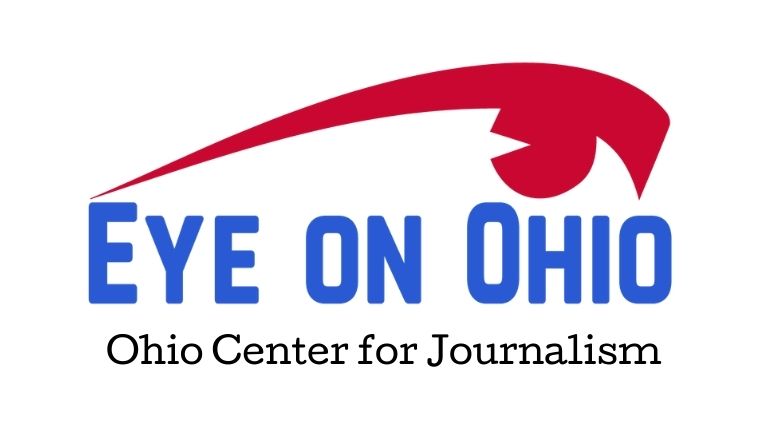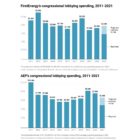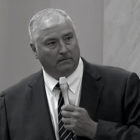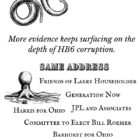-
Dark money helped Ohio utilities subsidize coal plants, delaying climate action at ratepayers’ expense
The biggest corruption scandal in Ohio’s history happened right under people’s noses, and much of the law at its center remains on the books. This story originated from the Energy News Network and Eye on Ohio and is part of ‘Climate & Democracy,’ a series from the global journalism collaboration Covering Climate Now. By Kathiann…
-
Ohio regulatory judge steps back from FirstEnergy’s HB 6 cases after subpoenaed records reveal his role
Greg Price’s recusal comes shortly after newly released documents show he played a part in policy discussions on HB 6 and responses to the FirstEnergy scandal. This article is provided by Eye on Ohio, the nonprofit, nonpartisan Ohio Center for Journalism in partnership with the nonprofit Energy News Network. Please join the free mailing lists…
-
Ohioans struggle to get help with utility bills
Federal programs exist, but how easy are they to access? By Conor Morris Rashidah Abdulhaqq worries her electricity and heat will be shut off. These are vital services during normal times, but especially during the winter, and especially when she has a portable oxygen tank she carts around to keep herself alive. Flanked by several…
-
Ohio cities settle civil claims related to power plant bailout
In a consolidated case, the Ohio attorney general’s office wants to move ahead on its civil racketeering case against FirstEnergy, Energy Harbor and others. This article is provided by Eye on Ohio, the nonprofit, nonpartisan Ohio Center for Journalism in partnership with the nonprofit Energy News Network. Please join the free mailing lists for Eye…
-
FirstEnergy says Ohio law at center of corruption probe protects it from ratepayer lawsuits
Class action case casts doubt on the integrity of the PUCO’s own actions in light of alleged corruption. This article is provided by Eye on Ohio, the nonprofit, nonpartisan Ohio Center for Journalism in partnership with the nonprofit Energy News Network. Please join the free mailing lists for Eye on Ohio or the Energy News…
-
FirstEnergy and AEP still spending big on lobbying
Although FirstEnergy dialed back reported campaign spending in the wake of House Bill 6, the company spent $500,000 on congressional lobbying from July through September. AEP spent even more. This article is provided by Eye on Ohio, the nonprofit, nonpartisan Ohio Center for Journalism in partnership with the nonprofit Energy News Network. Please join the…
-
FirstEnergy, DeWine’s office and others still far from full disclosure on HB 6
Roadblocks at the Public Utilities Commission of Ohio, in Gov. Mike DeWine’s office and elsewhere could make it harder to prevent future corruption. This article is provided by Eye on Ohio, the nonprofit, nonpartisan Ohio Center for Journalism in partnership with the nonprofit Energy News Network. Please join the free mailing lists for Eye on…
-
Ohio bill to reform electric rates aims to preserve coal plant subsidies under attack in wake of corruption probe
A plan to end Ohio’s long-criticized Electric Security Plans comes from a primary sponsor of HB 6, the 2019 law at the heart of a $60 million corruption case. This story is from the Energy News Network in collaboration with Eye on Ohio, the nonprofit, nonpartisan Ohio Center for Journalism. Please join Eye on Ohio’s…
-
Utility and fossil fuel influence in Ohio goes beyond passage of bailout
Dark money loopholes remain, while people linked to utilities and fossil fuels hold public office or enjoy ongoing access to government officials. This article provided by Eye on Ohio, the nonprofit, nonpartisan Ohio Center for Journalism in partnership with the nonprofit Energy News Network. Please join our free mailing list or the mailing list for…
-
FirstEnergy’s transparency pledge clashes with ongoing actions
The company’s broad view of its ongoing investigation for purposes of limiting public disclosures seems at odds with its narrow view and piecemeal approach to regulatory proceedings. This article provided by Eye on Ohio, the nonprofit, nonpartisan Ohio Center for Journalism in partnership with the nonprofit Energy News Network. Please join our free mailing list…










